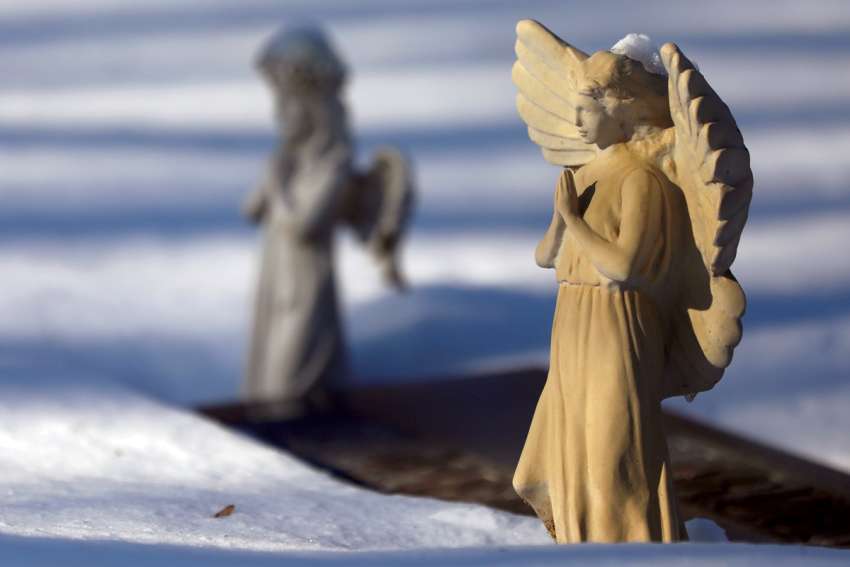It doesn’t stop there. All in all, the Bible contains 328 references to angels and Matthew’s Gospel alone has 19. Many of those references we may gloss over as just part of the background, such as when Jesus comes with “all the angels” at the Last Judgment (Mt 25.31)
But angels are not mere ornaments of the Christian life. They are door openers, spiritual beings who help us see beyond the prosaic here-and-now into the lyrical dimension of the divine.
The angelic doctor, St. Thomas Aquinas, took angels seriously. In his rational manner, he expounded on the nature of angels at length. St. Bonaventure, a 13th century contemporary of Aquinas, also wrote extensively about angels. Bonaventure saw the nine orders of angels as analogous to the nine stages of the spiritual life one must pass through on the way to gaining the heavenly vision of God.
One wonders how these medievals knew so much about angels. For them, angelology was not speculation but a form of knowledge. It helps us understand the human condition, human knowing and human willing. If God created a hierarchy of being with men and women the highest form of material existence and inanimate matter the lowest, it is fitting there be a form of spiritual being which is non-material.
We moderns reduce everything to one dimension — the material. Contemporary interest in angels is scant. They decorate Hallmark cards and show up as comic characters in the movies. But we give them no more respect than we give to elves and aliens. Perhaps less.
Western society is focused on the material and the practical, leaving no room for invisible beings who can bring knowledge and shape our wills. They ought to be seen as God’s messengers and guides who can help us rise above societal pressures.
Where does that leave us? If human action is formed solely by material causes, then human life has no meaning. We have no ability to choose but are simply products of our biology and our environment. But if we can and do initiate action, then there is something intrinsic to humanness which is non-material.
Angels then are guides to making morally good free choices. We ought not to ignore them but rather seek their help as we navigate through the rocky shoals of life with freedom and responsibility.
The question of whether our actions can be freely chosen or solely determined by our social and material environment is one of the great questions of our time. Yet, it is a question the social sciences marginalize since the existence of free choice undermines their supposed scientific nature. No one argues that all our choices are made in absolute freedom. We are shaped by our social environment and have great difficulty understanding and overcoming the underlying norms of society. To a large degree, we are all conformists.
Conformism is not inevitable. Socrates is reputed to have said something like, “The unexamined life is not worth living.” That is too extreme. But we do have the ability to examine the causes and reasons for our actions and failures to act when we should. St. Ignatius of Loyola urged us to do that daily and to do it in the light of the Gospel.
Who better to help us in that task than our angels? Aquinas maintained that angels have wills which are not influenced by the unspiritual tendencies which beset humans. They love God more than they love themselves. People learn through experience, by adding one piece of knowledge to another until patterns of knowledge form. Angels are given their knowledge when they are created so that they see the whole picture from the start. They walk down no blind alleys, and their perceptions are untainted by jealousy and pride.
The materialist rejection of angels and spiritual knowledge is a barrier to our highest realization of who we are created to be. Turning to our angels can be a path to liberation, a way of stepping outside the box of materialism and social conformity. God gave us each an angel. We would do well to seek their help in our daily decisions.
(Glen Argan writes his online column Epiphany at https://glenargan.substack.com.)


